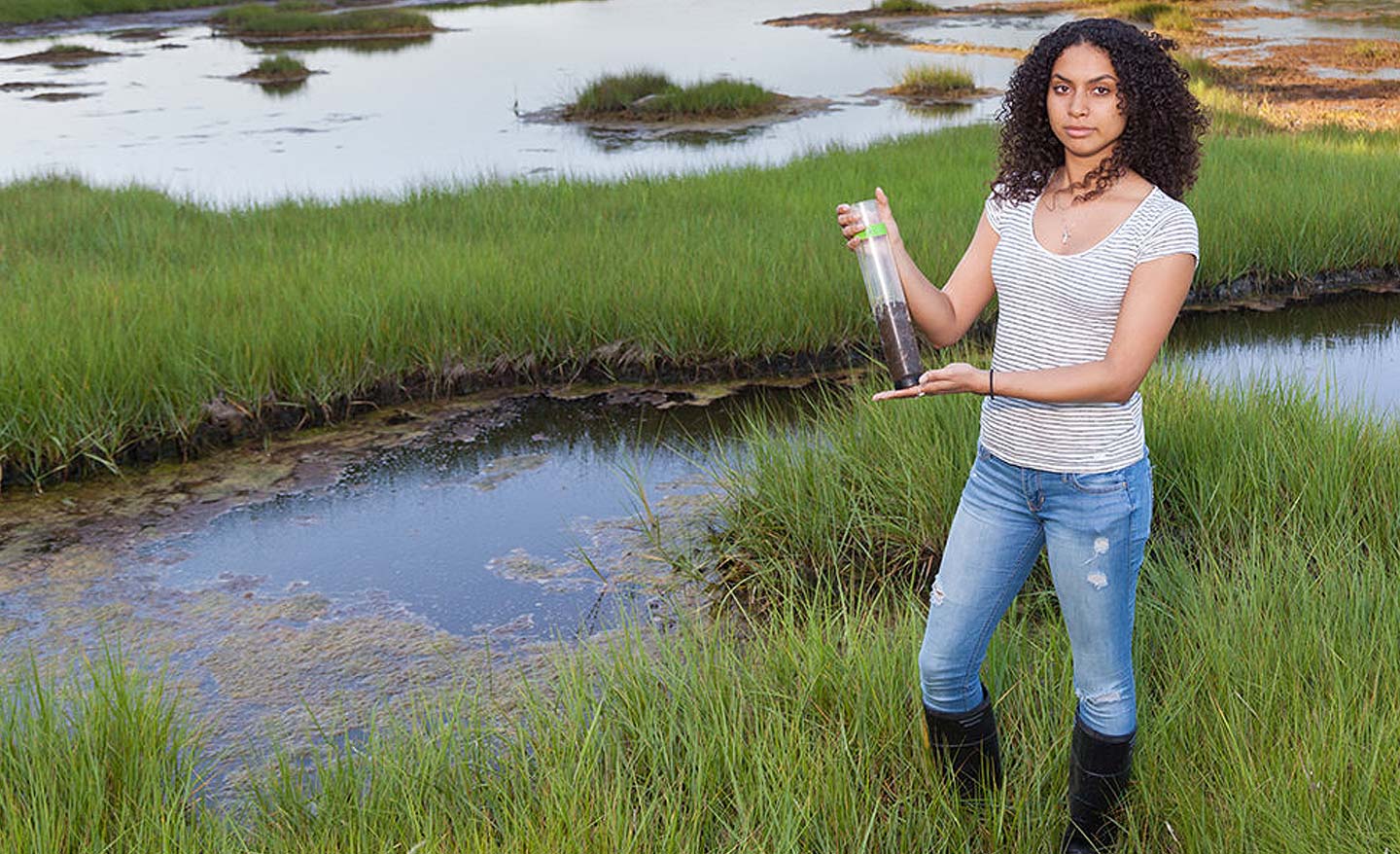Science in the Trenches
Torres Nuñez '20 has spent two summers examining the effects of drought on microbes.
Isis Torres Nuñez ’20 thinks microbes get a bad rap.
“There’s a common misconception that all microbes are harmful, but some are crucial for our survival and don’t cause maladies,” explained Torres Nuñez, a biochemistry, cellular and molecular biology major.
“We have microbes in our bodies that promote health and nutrition, and we also have microbes in our ecosystems that help with nutrient cycling. One of those nutrients is nitrogen, which is what our lab focuses on.”
Torres Nuñez has spent the past two summers in Conn’s Hale Laboratory examining the effects of drought on microbes, and the broader implications of those effects on different ecosystems. Her funded work is part of Connecticut College’s summer science research program, and she’ll also be traveling to Germany with Professor of Biology Anne Bernhard to deliver a presentation at the upcoming International Society for Microbial Ecology symposium.
Bernhard, who specializes in the microbial ecology of salt marshes, has done extensive work in local wetland areas, something Torres Nuñez was also able to take advantage of, by collecting samples from Barn Island in Stonington, Connecticut.
“It’s great that I get the intensive lab experience with this program, but also have opportunities to get outside and work in an environment like Barn Island, which has more than 1,000 acres of ecological diversity to study,” Torres Nuñez said.
Jean C. Tempel ’65 Professor of Chemistry Marc Zimmer is one of the faculty members leading a research project this summer. He emphasized the importance of the program for students looking to enhance their research skills and lay an early foundation they can build on for graduate school, or for a career in science or medicine.
“Science is like a language,” Zimmer said. “Our language students go abroad to immerse themselves in foreign languages, and to really learn the practice of science, our students have to immerse themselves in science, doing research five days a week for at least eight weeks."
The summer program, which provides a stipend and campus housing, offers an early opportunity for students to work closely with faculty and potentially get their research published.
Justin Nwafor ’21, pursuing a major in chemistry, is working on two separate projects this summer. The first, under the guidance of Zimmer, involves using computational chemistry to aid in the study of green fluorescent protein structures. The second, in collaboration with Margaret W. Kelly Professor of Chemistry Stanton Ching, focuses on finding innovative water treatment methods.
“We’re working with manganese oxides, because they’ve been shown to be fairly effective at degrading materials that are resistant to regular water treatment methods, but they’re also nontoxic and cost-effective,” Nwafor said.
Ching said he was impressed by the dedication and talent of Nwafor and the other students in the summer program, and that their exposure to practical lab and field experience will serve them well in school and their careers moving forward.
“The summer research experience is a wonderful opportunity for students to learn what it’s like to do science in the trenches,” Ching said. “They have to be able to work independently, think on their own, learn to use new equipment, design experiments, and assess results, all in the context of studying a system that has never been studied before.”
